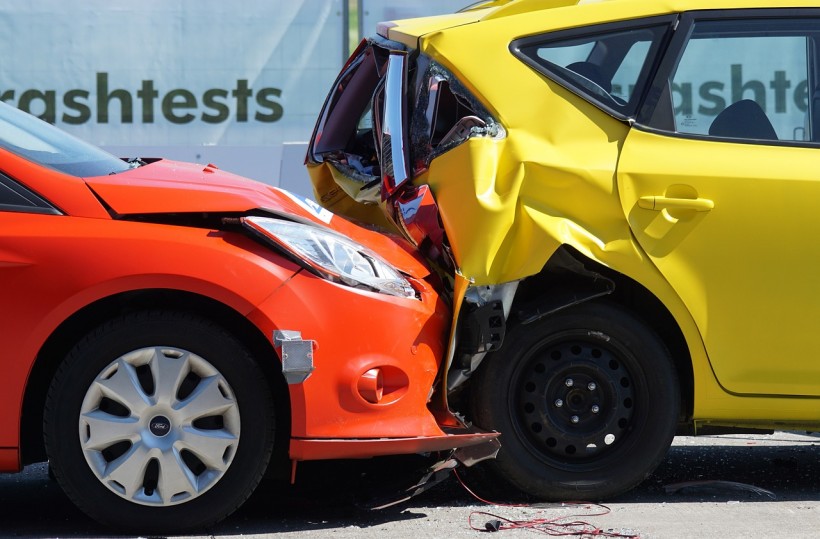Scientists caution that the upcoming total solar eclipse on April 8 could bring about a spike in fatal car crashes, mirroring the 31% increase observed during the 2017 eclipse. This warning, highlighted in a recent JAMA Internal Medicine report, underscores the need for motorists to be vigilant amidst the eclipse-related travel surge.

(Photo : Pixabay/Pixel-mixer)
Increased Car Crash Risk During the Total Solar Eclipse
The forthcoming total solar eclipse on April 8 is anticipated to draw over 3.7 million travelers to 14 states, including Maine, Kentucky, Idaho, Michigan, Pennsylvania, and notably, Texas, which is expected to host the largest number of visitors ranging from 270,000 to one million due to its prime viewing location.
Accommodation and transportation costs have surged, particularly in cities like Dallas, where hotel bookings spiked by 571% in anticipation of the eclipse. Similarly, hotel prices in Waco rose by 81%, while Cleveland and Austin experienced increases of 33% and 34%, respectively.
According to the report, the heightened traffic risks surrounding the eclipse parallel those observed during major holidays such as Thanksgiving, Memorial Day, and the 4th of July weekend. The total solar eclipse, occurring when the moon completely obstructs the sun, will cast a brief darkness during daylight hours, captivating an estimated 32 million spectators across North and Central America.
This event marks the first total solar eclipse visible from the US since August 2017, a period that also witnessed a 95% surge in traffic risks surrounding the eclipse.
The hour leading up to the eclipse saw a significant increase in the number of crashes, rising to 50% above the daily average as millions embarked on their journeys simultaneously. Dr. Donald Redelmeier, co-author of the report and a professor of medicine at the University of Toronto, expressed concerns, particularly regarding post-eclipse travel.
Notably, the spike in crashes wasn't attributed to the eclipse-induced darkness, with a significant decrease observed during the eclipse itself.
Researchers identified the hours immediately following the totality as the riskiest period on the roads, with a 50% higher risk compared to the daily average. With over 200 million people within driving distance of the totality path, concerns are mounting regarding similar traffic challenges during the upcoming eclipse.
Potential contributing factors include unfamiliar road conditions, speeding to reach viewing locations, distractions while driving, and impairment from alcohol or drugs related to eclipse festivities.
READ ALSO: April 8 Total Solar Eclipse Brings Rare Celestial Spectacle Amidst Solar Cycle Peak
Driving Safely Through the Eclipse
Leading up to the April 8 eclipse, Redelmeier stressed the importance of standard safety measures, highlighting their effectiveness in reducing risks. These precautions encompass obeying speed limits, minimizing distractions while driving, signaling lane changes, and wearing seat belts.
While the study focused solely on fatal crashes, it's plausible that eclipse-related traffic also contributed to less severe accidents. However, there are insufficient data to confirm this assumption, and the data doesn't differentiate between eclipse spectators and non-participants affected by the traffic.
Redelmeier emphasized the joint responsibility of all drivers in ensuring road safety during eclipse-related travel, urging caution to avoid a recurrence of the 2017 spike in fatalities.
The authors advised clinicians to counsel patients on safety measures like adhering to speed limits and abstaining from impaired driving, alongside advocating for broader initiatives to enhance transportation safety and prevent eclipse-related fatalities.
RELATED ARTICLE: Eclipse Chasing: Which Places in the Path of Totality Will Have the Best Weather on April 8?
Check out more news and information on Solar Eclipse in Science Times.


![Earth's Quasi-Moon Kamo‘oalewa Could Originate From Lunar Surface Not Asteroid Belt [Study]](https://1721181113.rsc.cdn77.org/data/thumbs/full/53275/89/56/50/40/earths-quasi-moon-kamo-oalewa-could-originate-from-lunar-surface-not-asteroid-belt-study.png)











